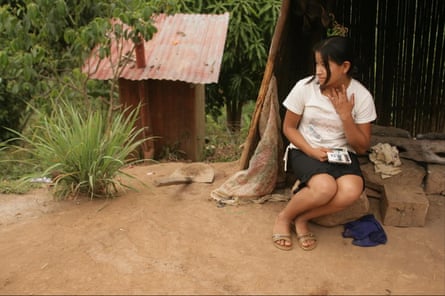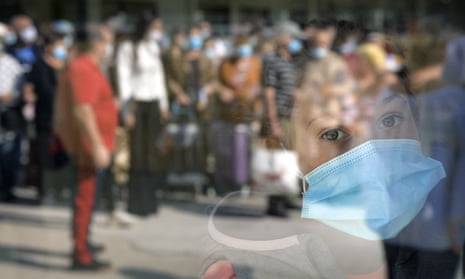In the coffee-farming communities of the Peruvian Amazon, the classroom is a route out of poverty. Gabriela was studying civil engineering in a city an hour and a half from home when the Covid-19 pandemic struck.
The 18-year-old, who is one of thousands of young people tracked since 2002 as part of the Young Lives project led by the University of Oxford, has been forced to postpone her education, in a country where 16% of 19-year-olds have dropped out of education because of the crisis.
It is not only Peru – one of the success stories of the past two decades in reducing poverty and raising living standards – where this is an issue. Gabriela is one of millions of young people across the globe undergoing similar experiences because of Covid-19.
The Malala Fund, which advocates for girls’ education, estimates, using models from the 2014 Ebola crisis in west Africa, that 20 million more girls could be out of school after the coronavirus pandemic.
A study of students the Young Lives project has been following in Ethiopia, India, Peru and Vietnam, published in January, paints a devastating picture of the economic and social impact of Covid-19 on young lives.

Their experiences raise fears that lockdowns and restrictions not only threaten to halt progress made over the past two generations, but could also reverse life chances and entrench inequalities for many young people, hitting those living in poor communities hardest.
Gabriela’s story is typical of many who have been forced, at all ages, to halt their education by the crisis. As a child, she helped out at home, carrying water and firewood with her mother and looking after her younger brothers and sisters.
When she was nine her mother died, leaving her and her siblings to be cared for by their father and elder sister. Further adversity struck in 2014, when the coffee crop failed and her father fell into debt.
She worked throughout her time at school, supported by her elder sister after her father died two years ago, and also worked on the farm during her holidays.
“My sister, with what was left [from the harvest profit] supported me with my studies. My father had his orchard and livestock. By selling [farm products] my sister supported me.”
“My father’s passing wasn’t a setback for me. As the saying goes: you have to finish what they start.”
The actual setback turned out to be a global pandemic. “No one thought this pandemic would be a long-term issue. I wanted to intern in the morning and study at night. I thought this could be done, but with this pandemic it couldn’t.”
While Gabriela did try to continue with her studies remotely as one of only five in her class of 20 who enrolled in April, like many, she faced severe challenges because of unreliable internet connections and having to share one computer with her siblings – a digital divide that has been experienced sharply across the globe.
“My brother and I had lessons scheduled at the same time. The first to enter rationed their time to give to the next. Sometimes he started and I lost my lesson, and sometimes the other way around.”
In the end, economic reality intruded. “In my town the harvest has finished. Being there without a job, without income, one cannot fool around. The need is big, I had to look for money. I as a big girl also have to support my younger siblings who are still there.’’
With an uncertain economic future, she may need to continue to work to support her family and may not be able to finish her professional degree if face-to-face lessons don’t resume.
“It would make me feel bad, because it would change my plans once again.’’

“Education plays a big role in helping people escape poverty. And that has been hit hard by the pandemic,” says Marta Favara, an economist and lead investigator with Young Lives.
“In the two cohorts we have been following, we were seeing people beginning to transition to higher education. Now we’re seeing them drop out of education as households face the economic crises caused by the pandemic.
“That includes increased food prices and health expenses and a decrease in income, as a lot of people have lost their jobs. Instead, we are seeing young people being pushed back to agriculture.”
For girls, says Favara, the economic risks of dropping out of education are higher, as they also often face pressure to start families. Research suggests leaving school earlier will mean they have less education and fewer opportunities.
All of which has reversed progress that the project had been tracking in nutrition, education and sanitation over the past two decades.
Especially concerning is the impact of the digital divide in many of the countries the project covers. This has amplified the problems in education seen around the world during the coronavirus crisis.
“The issue of the digital divide is huge. In some places only 5% have access to the internet. Then there is the question of what is happening to the mental health of these young people,” says Favara.
For Gabriela, like so many others, it is now just a question of waiting.
“We have to wait till it gets back to normal,” she says. “The old fashioned way. We’re going to have to start from scratch. Because sometimes one makes plans, but God has others.”
Sign up for the Global Dispatch newsletter – a fortnightly roundup of our top stories, recommended reads, and thoughts from our team on key development and human rights issues:
